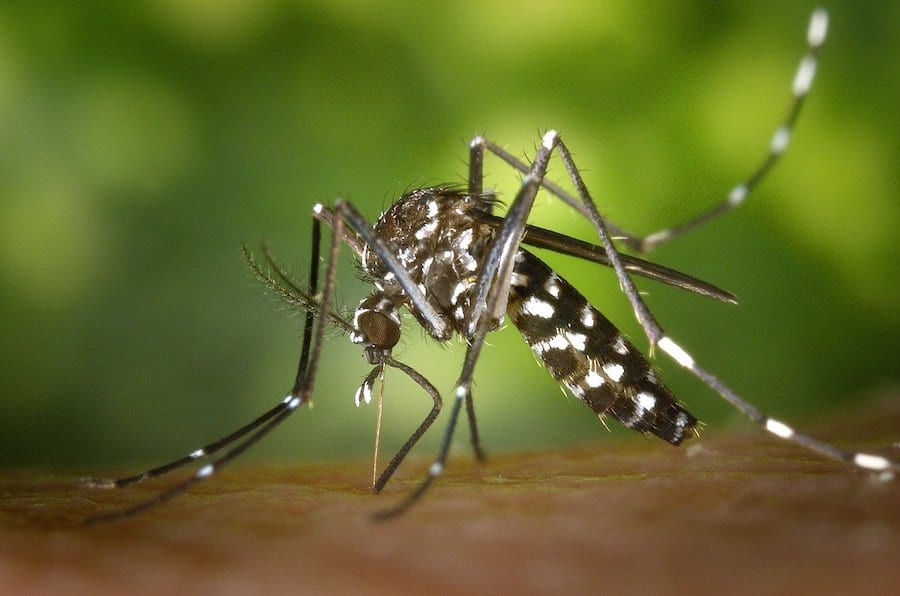Tiger mosquitos do not pose a coronavirus risk, say authorities, however they do spread other deadly diseases which are on the rise. Prevention, says the government, is therefore key.
The Tiger mosquito (Aedes aegypti) is easily identifiable by the black and white stripes on its body and legs. They are not the greatest fliers in the world, so are often easy to swat and, unlike normal mosquitos, this particular variety is also known for its blood-sucking activity during the day.
They may be small in size, but according to the World Health Organisation, mosquitos are one of the deadliest animals in the world. Their ability to carry and spread disease to humans causes millions of deaths every year, and numbers are rising.
The worldwide incidence of dengue has increased 30-fold in the past 30 years, and more countries are reporting their first outbreaks of the disease. Zika, dengue and chikungunya are all transmitted to humans by the Aedes aegypti mosquito.
So how can people protect themselves? The risk of chikungunya, dengue or zika epidemics lies in imported cases – that is, a person who has stayed in an endemic area and returns home with the disease present in their system.
None of these diseases can be transmitted directly from person to person, but if the mosquito bites an infected person, it can pick up the virus and transmit it to a healthy subject when it bites again.
In an effort to limit the risk of mosquitos, the Monaco government is encouraging everyone in the Principality to follow some simple guidelines: eliminate standing water on terraces and in gardens, no matter how small; use mosquito repellents, diffusers and spirals; utilise window and bed mosquito nets; and identify imported cases of chikungunya, dengue or zika early enough to allow the immediate implementation of public health measures.
Tiger mosquitos and Covid
The good news, according to the experts, is that it is impossible for insects to transmit Covid-19 through their bites.
“The World Health Organisation (WHO) had mentioned it, now the National Agency for Food, Environmental and Occupational Health Security (ANSES) has confirmed it: no transmission of the virus responsible for Covid-19 by a mosquito has been determined, nor of any virus of the coronavirus family,” said the government in a statement.
This is backed by a new study published on 26th June by the Italian National Institute of Health, which shows that mosquitoes cannot transmit the coronavirus, whether it be a common mosquito or a Tiger mosquito.
Chikungunya, dengue and zika: what are the symptoms?
Chikungunya or dengue fever may be present in a person with a fever above 38.5°C together with the sudden onset of at least one of the following signs: headache, muscle pain, joint swelling, lower back pain, rash or retro-orbital (eye) pain. Symptoms of Zika include rash (with or without fever) and at least two of the following signs: conjunctivitis, headache, joint pain and muscle pain. A blood test is able to confirm the diagnosis.
People who suspect they may have one of the mosquito-born diseases are advised to use a suitable skin repellent on themselves and their close entourage while they wait for testing at the Princess Grace Hospital Centre.
Mosquitos don’t transmit Covid-19, but other risks remain
